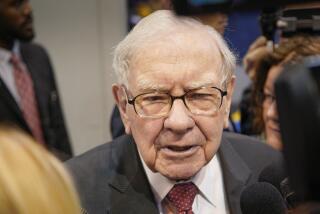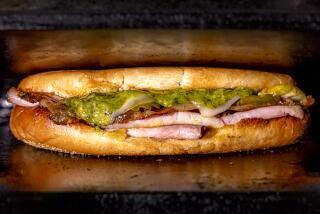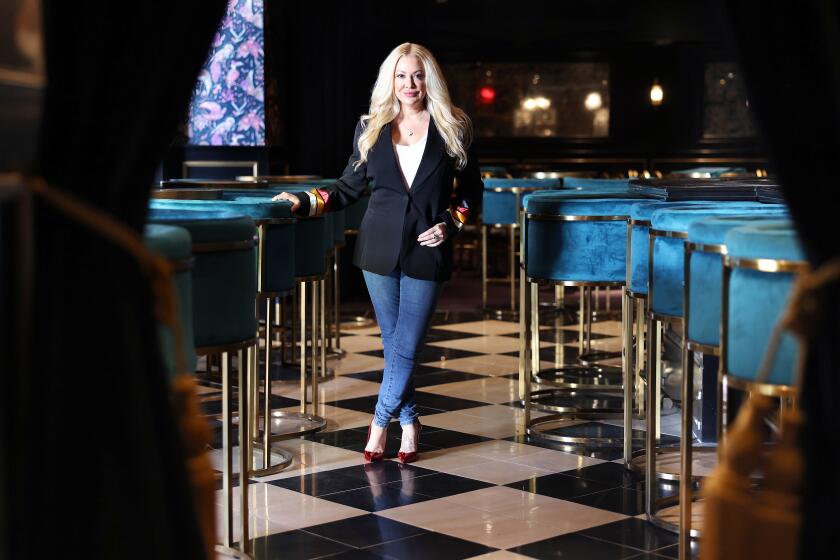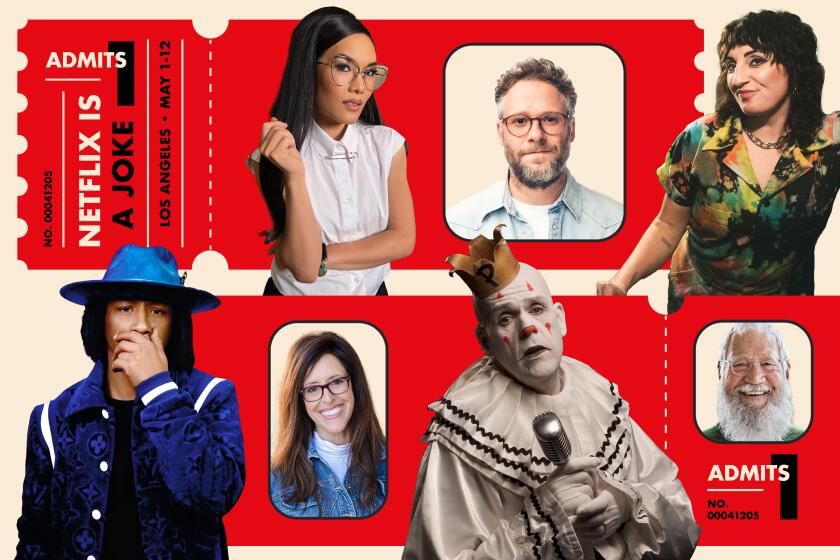Goodwill Guardians
New York has George Soros. L.A. has Eli Broad. Vegas? Bet you thought everyone was busy wagering. Wrong. The city, historically known more for carnality than compassion, has a range of denizens working not only for a better city but a better world.
The philanthropic know-how in Vegas arises from its humble beginnings as a desert outpost inhabited by a handful of intrepid settlers. If people wanted a school, they built one. If they wanted a watering hole, they would dig and drink from it. There wasnt a legit financing source for creditless risk takers, so residents became self-made entrepreneurs, building a hometown from the ground up. That DIY mentality is in the DNA of what is now a megalopolis.
Las Vegas philanthropists arent bluffing. To get a glimpse of how they work, look at the contributions of these selfless citizens, who have been intent on turning their hometown into a beacon of social consciousness.
LARRY & CAMILLE RUVO: Raise a Glass
Odds are if youve had an alcoholic beverage in any hotel, restaurant or casino in Nevada, youve sampled Larry Ruvos wares. The senior managing director of Southern Wine & Spirits of Nevada, the states largest wholesale liquor, wine and beer distributor, has been on the Vegas scene since he worked as night manager at the old Frontier Hotel. Now theres a big addition to their legacythe Lou Ruvo Center for Brain Health.
Its a bittersweet accomplishment, since Larrys father, Lou, a pioneer in the local restaurant world, passed away in 1994 after a two-year battle with Alzheimers. In tribute, the couple formed Keep Memory Alive to raise funds for the center and for research on neuro-degenerative diseases such as dementia, Alzheimers, ALS, Parkinsons and Huntingtonsall of which reduce cognitive function. It started at a dinner at Spago, says Camille. Our friend John Paul DeJoria [of Paul Mitchell] said, I want to raise money in honor of Lou. Im giving $5,000. One by one, others shouted out donations in Lous name.
That giving spirit sparked fundraising of the highest order. The Ruvos launched Power of Love, an annual benefit highlighted by an auction of lavish items, such as a Tahoe vacation package at the Ruvos getaway (with dinner cooked by Emeril Lagasse), tennis with Andre Agassi and Steffi Graf and a private show by Robin Williams.
Larry began lecturing on the importance of fueling research for chronic brain disorders. He enlisted Dr. Zaven Khachaturianthe worlds foremost researcher on Alzheimersas CEO, which brought in even more high-level experts. Then he called upon Frank Gehry. The architects response? I dont want to build anything in Vegas. Larrys retort? Its a shame a man like you wouldnt use your celebrity to help cure a disease. Three hours later, Gehry, a longtime supporter of Huntingtons research, signed on. The institute would be a mecca of world-class health care and a work of art in its own right.
Recently, Larry scored a partnership with the renowned Cleveland Clinic. Already a leader in neurology, the clinics philosophy of patient-focused care appealed to the Ruvos. When someone has a condition such as dementia or Alzheimers, the entire family suffers, says Larry. My mother needed back surgery after repeatedly lifting my father. The impact on the caregiver is huge.
Situated downtown on 61 acres do-nated by the city of Las Vegas, the $100 million Cleveland Clinic Lou Ruvo Center for Brain Health is set to open on July 1. The metal and glass structure, a maze of 550 steel puzzle pieces, looks stunningly like a brain. Inside, a Wolfgang Puck Café, a Museum of the Mind and a vast events center make it like a small city. Just think, says Larry, you can have your wedding at the institute and write the check for charity. What could be better? Still, he and Camille dont hesitate to give kudos to their community: Were making history, and people want to be a part of it.
For information, visit keepmemoryalive.com.
JAMES E. ROGERS: Higher Learning on Higher Ground
Im not a philanthropist. Im a crusader, says Rogers, a former attorney. After making his fortune as the owner of Sunbelt Communications, which operates 16 television stations in five western states, he has made education his raison dêtre. And his passion hasnt gone unnoticed. In 2005, he was appointed chancellor of the Nevada System of Higher Education.
A crusader is exactly what Nevada colleges need. The states graduation rates are significantly lower than the national average. We have a culture that doesnt understand the need for education, he says. When a kid can make $1,000 a week waiting tables, he says, Why should I go to college? What he cant foresee is that he might not want to wait tables his entire life. It doesnt help that the state doesnt offer financial aid programs.
But Rogers is focused on bringing change. To motivate the best and brightest, he is putting effort into fighting budget cuts. Our governor wants to cut it by 36 percent because we have too many high-priced educators, he says. We might as well close up shop if we do that. Educators are kind, sweet, passive people. We have to fight and publicize ourselves, not hide. Im creating scholarships to keep students here and trying to get the state to offer loan programs.
To get his point across, Rogers is an aggressive self-promoter, speaking to any community organization that will listen, using Sunbelts Las Vegas station as a bully pulpit to deliver hard-hitting editorials. Sensationalism doesnt add to the culture of our community. I want our stations to be leaders in education news.
He learned about the value of giving from his former law and business partner Louis Wiener. We made a fortune as TV-station owners. He said I should figure out all my expenses and then decide how much I needed to maintain my desired lifestyle. Like him, I would give away the rest to education, since thats what was responsible for our success.
That was 14 years ago. He and his wife, Beverly, have donated $500,000 every month over the past 10 years toward higher education across the country, including two ACLU fellowships and the largest gift ever to an American law school$137 million to the University of Arizona. My wifes a flaming liberal, and so am I.
Rogers shrugs off the idea of being labeled a philanthropist. Theres no such thing. People want a return on their investment. For instance, if you give money to a law school that ranks 50th, you want to know that with your donation, it will rise to 45. Or if your mother died from breast cancer, you want to know theyre going to use your money to find a cure. Nobody just gives money away.
For information, visit system.nevada.edu.
JULIE MURRAY: Hunger Pangs
If you know anything about the intense competition of Las Vegas, its hard to imagine the Luxors executive chef breaking bread with the head chef of the Palazzo. Or the Boyd Gaming VP sidling up next to the VP of Harrahs. But the citys most visible rivals happily join forces to fight hunger, thanks to Murray, executive director of Three Square, Las Vegas Valleys largest food bank.
For a power player whos served as a philanthropy consultant at Harrahs Entertainment, raised $36 million as campaign director of the Andre Agassi Charitable Foundation and helped kids as the Vegas cosponsor of the I Have a Dream Foundation, Murrays workplace is decidedly unglamorous. Fifteen miles from the Strip, in a nondescript industrial park, she toils in a 50,000-square-foot refrigerated warehouse filled with granola bars and pudding cups.
Hunger isnt the stereotypical guy on the corner holding a beer in one hand and a sign in the other, she says. One out of 10 people suffer from hunger in our county. It impacts everyone. But I say, no more. The determination comes from her grandmothers decor. Her curtain valance was embroidered with the words, Passion, Persistence and Patience, and to this day those three values propel me.
The hunger crisis hit hard for her when she worked with Agassi in 2001. A study showed 210,000 Clark County residents living in poverty and found children under 18 make up the largest percentage of the population4 in 10and dont have enough to eat.
In 2007, armed with the comprehensive study spearheaded by hotelier Eric Hilton, start-up money from his fathers Conrad N. Hilton Foundation, a warehouse donated by Clark County and support from many of Vegas heaviest hitters, Murray opened Three Squareas in, three square meals a dayto serve as a hub for agencies to distribute food to the needy.
The first year we moved 10.7 million pounds of food, she says. It broke records. Currently, 12 company trucks haul donated and rescued food to 230 venues, including senior centers, rescue missions, hospices and churches. On one afternoon, MGM execs and their spouses spent the day loading trucks. Now there is a second 70,000-square-foot warehouse, complete with a kitchen, as well as hundreds of volunteers and UNLV nutritionists. Planned is the Summer Food Service Program, to provide meals over summer vacation because so many kids get their sustenance at school. In a time of recession, were doubling our budget from $4 million to $8 million.
Credited with creating a national model, Murray spoke this past year on hunger before both the House of Representatives and Congress. We have this vibrant city, she says. To see people suffering in it is unacceptable.
For information, call 702-644-FOOD, or visit threesquare.org.
JIM & HEATHER MURREN: Cancer Care and Conservation
Three years ago, cancer patients in Nevada requiring top-level treatment had to travel out of state. No longer, thanks to MGM Mirage CEO Jim Murren and his wife, Heather. They had been affected by the disease on both sides of their family, but when the couple moved to Vegas in 1998, medical care wasnt even a consideration.
In New York, it was second nature to have great medical care all around us, says Heather. But when we arrived, we saw that health care here was not at the level it needed to be to serve a growing community. There were good community oncologists but no local clinical trials. Nevada had the same cancer rates as the rest of the country but among the highest mortality rates once diagnosed.
So in 2000, the Murrens put their years as Wall Street analysts to use to assess the need for a state-of-the-art facility in their hometown, then began spear-heading the fundraising and galvanizing community support. In September 2005, the 142,000--square--foot, four-story, $52 million Nevada Cancer Institute opened in Summerlin, 10 miles west of the Strip. The institute is Heathers baby, as she functions as chairman of the board, focusing on long-range planning. Shes already witnessing the payoff. The citys health community had not grown in relation to its infrastructure. Now it is much more in line with the ratio of residents to treatment ability.
While Heathers goal has been to improve the quality of cancer care, Jim has chosen to focus on reducing the ecological footprint at his MGM Mirage resortswhich include the Bellagio, Luxor, MGM Grand, Mirage, Treasure Island, Monte Carlo, New York New York, Excalibur and Circus Circus. With all the dramatic fountains, lighting and lush foliage on the company properties, no one would notice the conservation effortsand thats exactly the point.
Every Las Vegas property has a Green Team to implement sustainability, says Jim. Excalibur replaced approximately 4,000 showerheads with low-flow fixtures. Mandalay Bay replaced 90,000 incandescent bulbs with fluorescent. Circus Circus diverts so much material to its recycling program that trash pickups have been massively reduced.
The overall impact of his efforts cant be ignored. In 2008, we implemented 29 projects to conserve electricity, natural gas and water. We saved about 29.8 million kilowatts, he says. Thats equivalent to turning off the electricity in 2,965 homes. Our emissions reduction is equivalent to growing 548,063 tree seedlings. He also oversees the development of CityCenter, set to open later this yeara $9 billion metropolis of residences, retail and entertainment on the Strip that recycles a minimum of 90 percent of all construction waste.
The Murrens are humble about their accomplishments but proud to give a shout-out to the wherewithal of their city as a whole. Here, declares Heather, we say, If you dont have it, build it.
For information, visit nevadacancerinstitute.org.
More to Read
The biggest entertainment stories
Get our big stories about Hollywood, film, television, music, arts, culture and more right in your inbox as soon as they publish.
You may occasionally receive promotional content from the Los Angeles Times.






